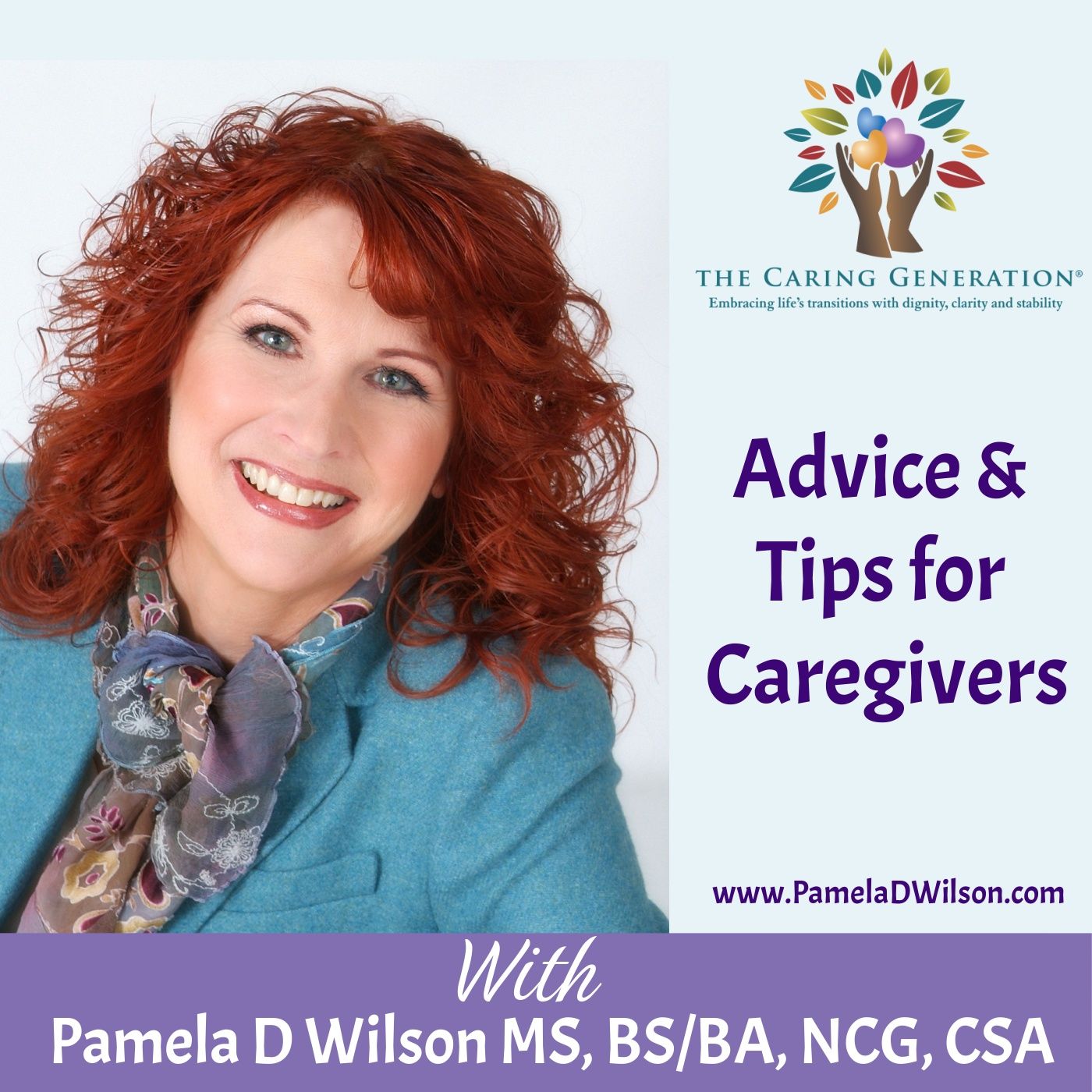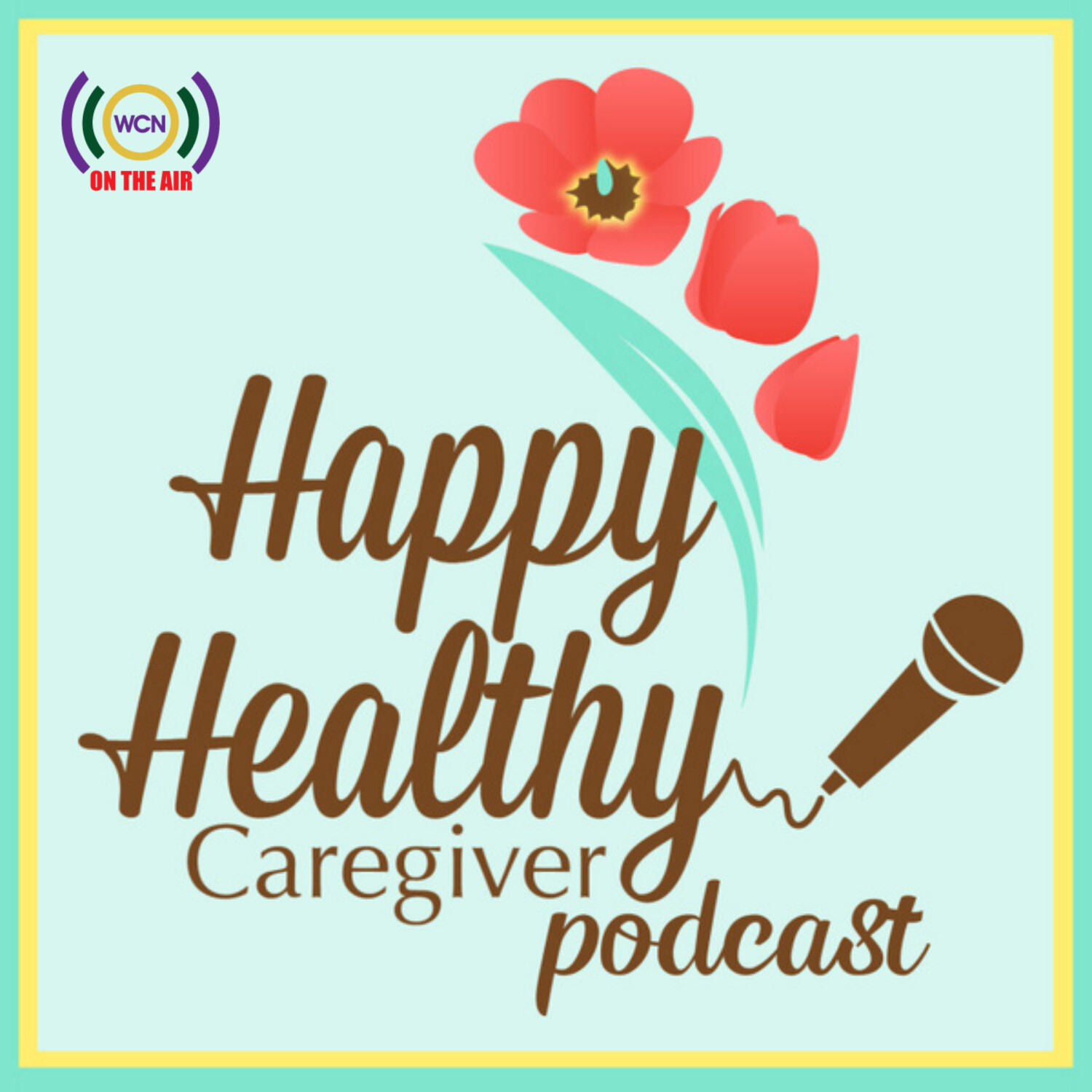
The Caregiver Innovation Show
The Caregiver Crisis Podcast
For family caregivers juggling it all — work, kids, aging parents — this podcast is your lifeline.
We cut through the overwhelm to bring you real stories, practical tips, and tech tools that help you care smarter, not harder.
Hosted by The Caregiver Crisis Initiative, each episode explores simple ways to reduce stress, keep loved ones safe at home, and restore your peace of mind. No fluff. No guilt. Just real help.
🎙️ Featuring expert guests, product spotlights, and caregiver voices.
🧠 Learn what works, when to use it, and why it matters.
🔒 Save the “how” for when you're ready to go deeper inside our private community.
Free Starter Toolkit →
Tech Partner: Electronic Caregiver
Subscribe and join the movement to make care easier — one episode at a time.
🎧 Become a supporter of the show!
https://www.buzzsprout.com/2408853/support
The Caregiver Innovation Show
Caring From 1,000 Miles Away: How Technology Is Closing the Distance
The worry of caring for someone you love from miles away carries a unique weight. That feeling of wanting to be there but simply not being able to, coupled with the anxiety of not knowing exactly how things are going day-to-day – it's a challenge many of us face as families spread across greater distances.
This conversation dives deep into how technology is transforming long-distance caregiving, particularly through systems like Addison from Electronic Caregiver. We explore how these technologies go far beyond the limitations of scheduled phone calls, which, while emotionally connective, leave significant gaps in our awareness of loved ones' daily realities. Instead, tools like Addison offer a constant, subtle presence that actively monitors, supports, and provides crucial information to caregivers far away.
The power of these solutions lies in their multifaceted approach. Activity monitoring learns what's normal for someone and flags meaningful changes – perhaps detecting reduced movement that could indicate a health concern long before a weekly call would reveal it. Medication management features help keep loved ones on track with crucial prescriptions while easing a major source of caregiver anxiety. Regular automated check-ins create a structured flow of wellness updates throughout the day, offering peace of mind that would otherwise be impossible across distances.
What becomes clear through our discussion is that these technologies aren't trying to replace human connection but enhance it by providing additional layers of awareness and support. They offer tangible reassurance for adult children caring for aging parents from afar, easing both practical concerns and emotional burdens like guilt and fear. As we look toward the future of caregiving in our increasingly dispersed society, consider how these new forms of connection might positively impact both you and those you care for. You can't be everywhere – but technology can help fill the gap.
You know caring for someone you love when you live far away. It comes with this unique kind of worry, doesn't it?
Speaker 2:It really does. That feeling of wanting to be there but you just can't, and the stress of well, not knowing for sure how things are.
Speaker 1:Exactly so. Today we're diving into how technology is sort of stepping into that space, offering new ways to connect and maybe get some peace of mind.
Speaker 2:Yeah, it's fascinating how tech is trying to bridge that physical gap. We've been digging into the long distance caregiving with technology discussion, especially around the system called Addison from Electronic Caregiver.
Speaker 1:Right.
Speaker 2:And our goal here really is to figure out how these tools can actually, you know, support people, provide some reassurance when you're caring for loved ones from miles away.
Speaker 1:Okay, so for ages it's just been the phone call, hasn't it? That's the main cool.
Speaker 2:Pretty much.
Speaker 1:But just talking. I mean, you can't always tell how someone really is doing, can you? There's definitely a limit to the comfort a call provides when there's distance involved.
Speaker 2:That's the key limitation, isn't it? You get the connection, which is vital, but you miss the objective stuff, the day-to-day reality, and that's where technologies like Addison are trying to make a difference, recognizing that gap.
Speaker 1:So, addison, specifically, what's it doing? That's different from just, you know, picking up the phone.
Speaker 2:Well, Addison is basically a 247 health assistant that works using your voice.
Speaker 1:Okay, 24-7.
Speaker 2:Yeah, it's designed to be this kind of constant, subtle presence. It actively monitors things, provides support and then relays crucial bits of information back to the caregiver who's far away.
Speaker 1:Right, so it's more than just conversation. How does that constant presence work? Like what are the actual features doing?
Speaker 2:Okay, so one really important one is activity monitoring. Addison learns what's sort of normal for the person's daily routine.
Speaker 1:Their patterns.
Speaker 2:Exactly, and if there's a big change, say much less movement than usual for a long period, it can flag that so that gives the caregiver an early heads up about potential issues, something you'd likely miss on a scheduled weekly call, perhaps. Like maybe a drop in movement suggests a mobility issue, broi.
Speaker 1:Yeah, that kind of early warning that could be huge, a real game changer. What about managing medications? That's always a massive worry.
Speaker 2:It is, and Addison tackles that too. It gives medication reminders, helps the person stay on track with their prescriptions, which is, you know, good for their health directly, but it also takes a big weight off the caregiver's shoulders.
Speaker 1:I can imagine, and you mentioned check-ins too. How do they fit in?
Speaker 2:Right, so Addison can do these regular automated check-ins. It basically prompts the person, asks if they're okay, gets them to confirm.
Speaker 1:Or a quick you all right kind of thing, sort of yeah, gets them to confirm. Or a quick you all right kind of thing.
Speaker 2:Sort of yeah, but it creates this structured flow of updates on their well-being through the day and that info is then available to the caregiver. It's a more proactive way to stay connected.
Speaker 1:It really sounds like the tech is working alongside the human connection rather than, you know, trying to replace it, enhancing our ability to care.
Speaker 2:That's exactly the point made in the source material we looked at. There's a difference between actually being there physically and staying connected emotionally and practically. Technology obviously can't give a hug, but it can offer these really powerful ways to maintain that practical connection through information and consistent background support.
Speaker 1:So, when you boil it all down, what's the main message we're getting about tech in this long-distance care scenario?
Speaker 2:I think the core takeaway is really about technology's power to bridge that geographic divide and ease some of that emotional burden.
Speaker 1:That guilt and fear we mentioned at the start.
Speaker 2:Exactly, it offers something tangible, some reassurance, especially for adult kids trying to look after their parents from afar. It's like adding a virtual layer of awareness and support.
Speaker 1:So for you listening, the upshot is that these technologies are offering concrete solutions, ways to tackle those feelings of worry when you can't physically be there for someone you love. And it reminds me of the closing thought from that long distance caregiving with technology piece. And it reminds me of the closing thought from that long distance caregiving with technology piece you can't be everywhere but technology can help fill the gap.
Speaker 2:It's a powerful idea, and maybe a final thought to leave you with is this how might staying connected in these new ways, even from afar, truly impact the well-being not just of the person needing care, but the caregiver too?
Speaker 1:Yeah.
Speaker 2:It kind of pushes us to think differently about what being present really means when distance is a factor.






